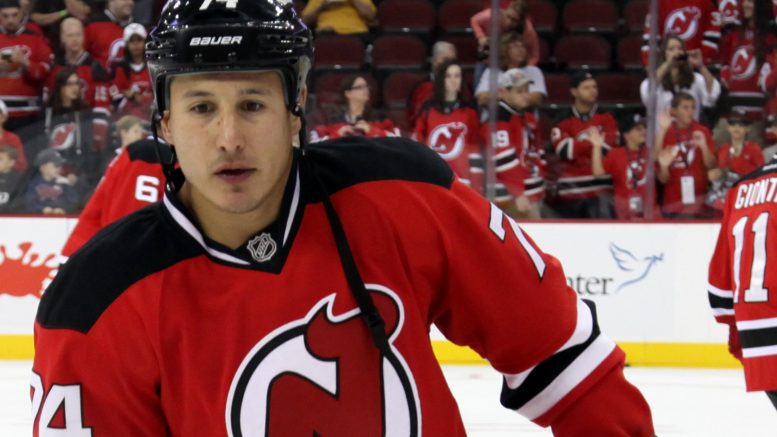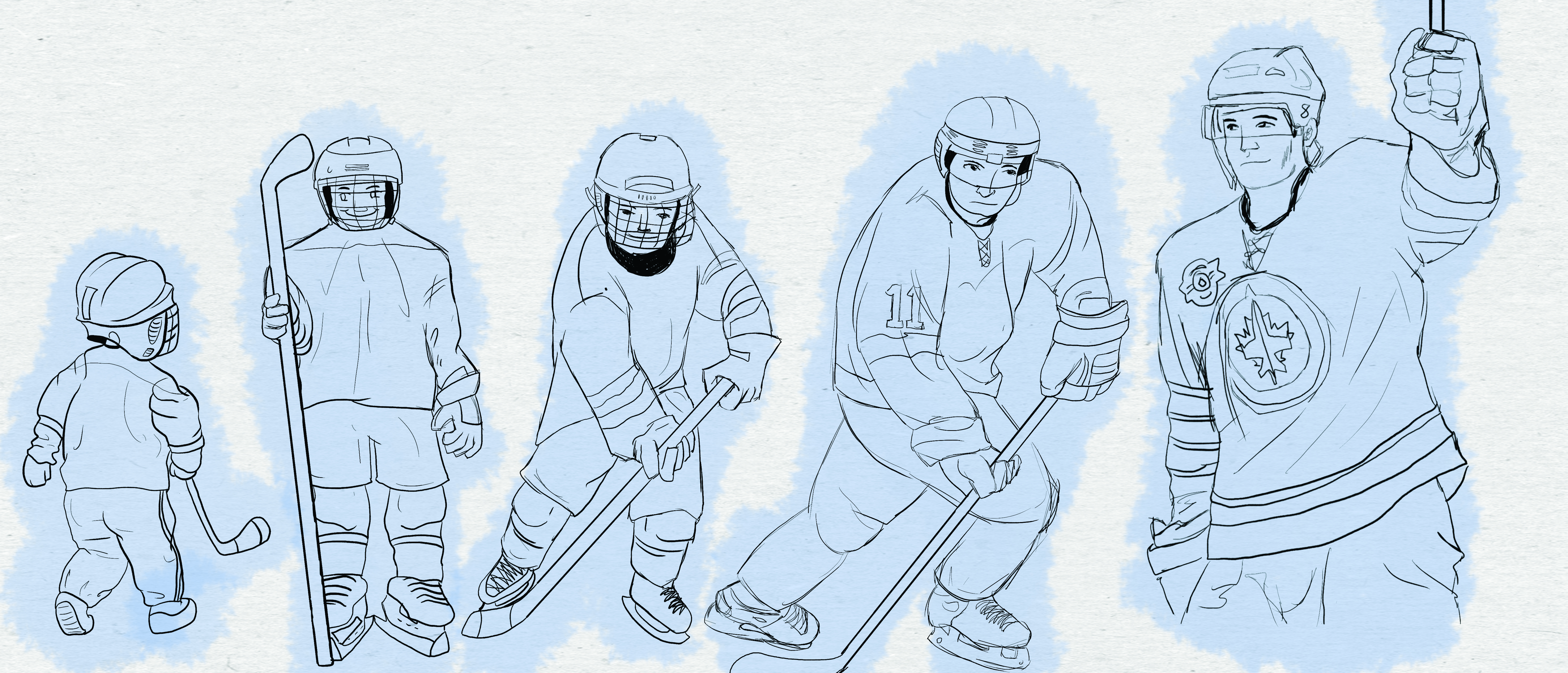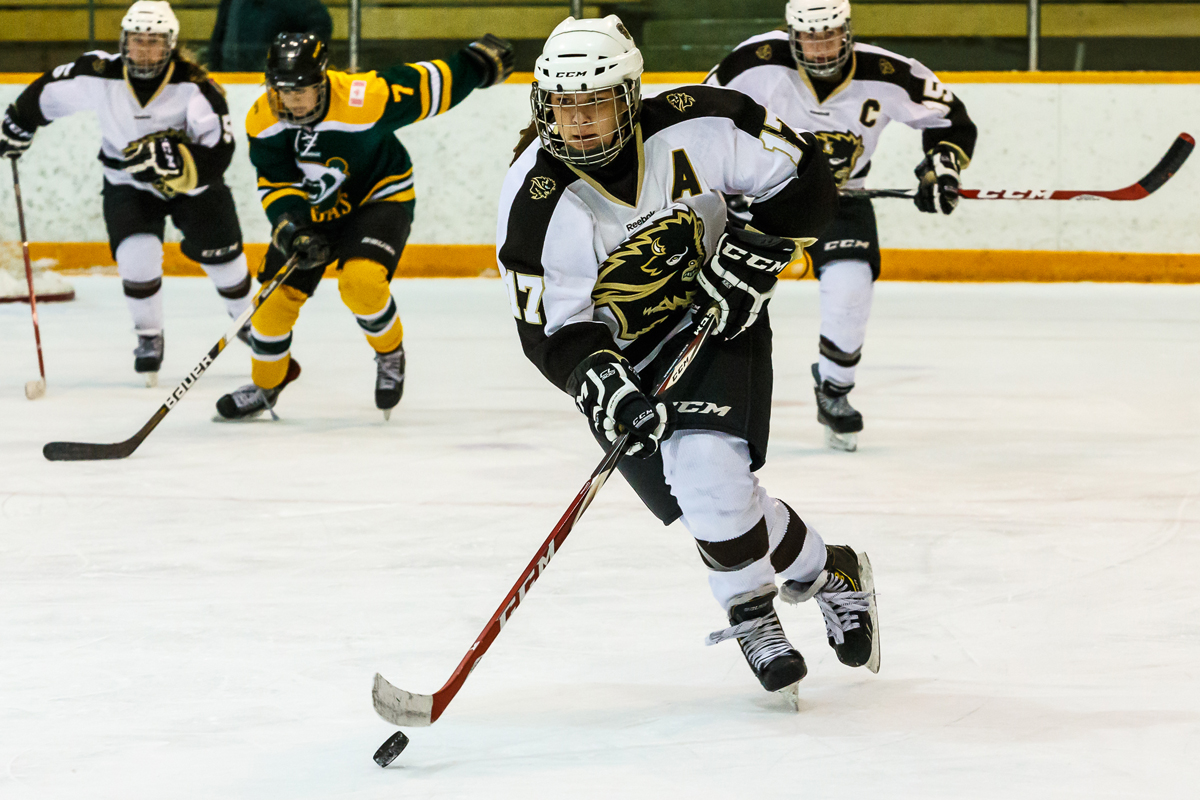Terence Tootoo tragically committed suicide in 2002. He left a note addressed to his brother Jordin and it is a poignant reminder of brotherly love, and the catalyst for his drive to play in the NHL.
“Jor, go all the way. Take care of the family. You’re the man. Terence,” Terence wrote in his note, his final words to his brother.
Jordin Tootoo has always been an interesting figure. The small and scrappy forward from Churchill is known more for one-punch knockouts than scoring goals. With the release of his book All The Way: My Life on Ice back in 2014, readers got to see another side of the man.
In his book, Tootoo opened up about more than just his life as the first Inuk player to put on an NHL jersey. He let the public see the vulnerability hidden behind the tough enforcer. He talks about his abusive childhood at the hands of his parents, the effect the death of his brother had on him, and how his career spiraled out of control due to his drinking.
Pulling no punches, as Tootoo is oft to do, he berates players and executives as he sees fit. He names people, calls out their actions, and is unexpectedly candid for a player in a sport where being humble and respectful is the name of the game.
Starting his career with the Nashville Predators, Tootoo became the darling of Manitoba. Everyone knew his name, and his agitating style of play was something to admire. However, the dream spurred on by his late brother Terrence was almost derailed in 2010 when Tootoo checked in the NHL’s substance abuse program.
Detailed in the book, “[Predators GM] David Poile had heard all of it too many times before, and he wasn’t buying it anymore at this time the ultimatum was offered, and Tootoo accepted saying, ‘Right then and there, I decided I wasn’t going to fight it anymore. I said [expletive], I’m done. Let’s go.’”
After leaving rehab, Tootoo remained quiet on the issue, providing the usual generalizations while going about his career. He left the Predators following the 2011-12 season, playing stints in Detroit and New Jersey before landing his current job with the Chicago Blackhawks.
Tootoo fills the gap left by the departures of Andrew Shaw and Bryan Bickell, by playing his brash, blue-collar type of hockey. He’s yet to rediscover the scoring touch he had back in his days with the Brandon Wheat Kings – where he put up 74 points in his final season – but is playing his role. Tootoo has recorded 16 hits and 11 penalty minutes while suiting up for 17 games this season. This is a great sign for an enforcer in the modern NHL, where guys like him struggle to hold down a job.
Tootoo is just one in a long list of NHLers to combat substance abuse issues, and trying to right the ship to save their career. Scott Darling of the Chicago Blackhawks went from using alcohol to battle crippling social anxiety to winning the Stanley Cup in 2015. Devin Setoguchi fell to the same demons, which derailed what was at one time an extremely promising career. He is currently with the Los Angeles Kings, trying to remind the hockey world of his potential.
The NHL/NHLPA Substance Abuse and Behavioural Health program is a closely-guarded secret. However a leak of league documents has shed light on the comprehensive program, which is in place to help players get back on track.
The league-funded program is administered by a multi-national network of doctors, at locations specifically chosen for the player in need. Players undergo education regarding their circumstance, individual counselling and treatment, and are under the care of the team physician following discharge.
While exact numbers of players treated are unknown – as the entire program is kept completely confidential – from the success of players like Tootoo, it seems to be working.
After a lifetime of abuse, the death of his brother, and the near loss of his dream, Tootoo seems to be back on the right track. He’s a key part of a Stanley Cup-contending team, staying in the lineup almost every night. Where other guys who play his role have fallen out of favour with the league, he keeps finding a way to keep the dream alive and prove that he has a part to play.





